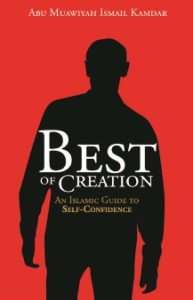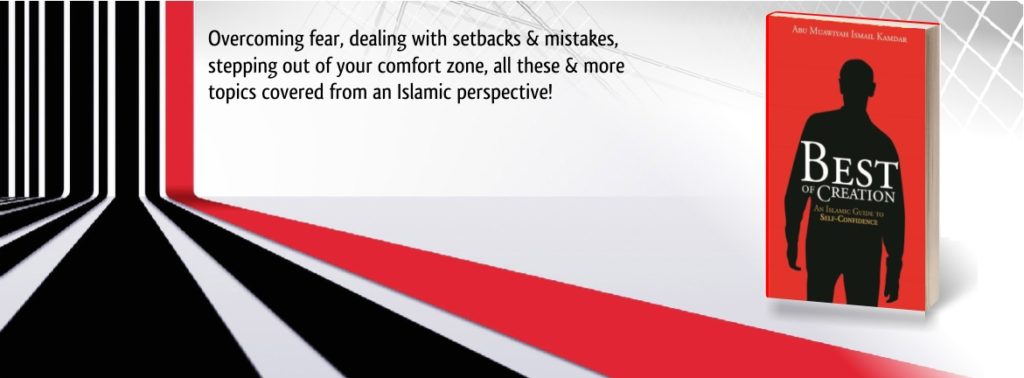
The obstacles in the way of your goal that you were not expecting
Life is strange. When you set off to achieve a goal, there are obstacles in the way of your goal that you expect. Enemies, jealous rivals, blunders, learning curves, and budget problems to name a few. These are the obstacles we expect.
But then there are obstacles we did not expect. These are the ones that really sweep us off track and leave us winded. They come from the least likely sources, and as a result the impact is much harder. So what are these obstacles in the way of your goal?
1. Your Family
When we think about obstacles, we don’t think about family. Yet in most true stories, there is almost always an obstacle from the family.
Here is an example: Ahmad has an amazing idea for a new business. He shares his idea with his family and expects their full support. To his surprise, the entire family shoots the idea down as too risky, and discourages him from chasing it.
Feeling dejected, Ahmed gives up and doesn’t bother even trying to chase his idea.
What just happened? (Or understanding their perspective)
Your family’s duty is to protect you. Often they view your ideas only through that perspective. Their protective instincts kick in because they love you. They don’t want you to get hurt. So they feel its better to discourage you from grand ideas that could hurt you, even if it also has the potential to be great for you.
They love you. They want to protect you. That is why they do what they do.
So what should I do? (Or the solution)
Every great business idea/goal/new venture is risky. That’s part of life. We can’t achieve new goals without some level of risk. However, we should not expect family support when taking a risk. The risk is our own. We need to own it, and face it alone.
If you have support from someone, then that is a blessing. If not, you need to go at it alone and be responsible.
One way to keep their hearts at ease is to have a backup plan. A job on the side, some savings, another source of income, a means of recovery. You will need these anyway. But showing your family that you have these is a great way to put their hearts at ease while you take the risks needed to pursue your grand ideas.
2. Your Friends
Depending on the kind of friends you hang out with. Telling your friends about your ideas could go one of two ways: support and sincere advice or full-on jealousy!
When I first started chasing higher goals, I found myself having to shift my friend circle completely. My friends were people without ambitions or goals, they wanted to stay that way. They felt threatened if anybody disturbed that natural order. So they would discourage me from chasing any goals that would move me higher in life.
So what did you do? (or the solution)
I got a new friend circle. I stopped hanging out too much with people who put down my ideas, tell me I can’t achieve them or that I’m wasting time. Instead, I started hanging out with people who achieve great things themselves, and encourage me to do the same.
If you are facing a similar problem, you may want to consider changing the type of people you hang out with.
3. Yourself
The biggest obstacle any person faces when chasing a scary risky strange new goal is…himself!
Your brain will try to put you off your goal in so many ways. Your mind would flood with thoughts like the following:
“I’m not good enough!”
“Nobody would read anything I write!”
“I have no experience in this area.”
“I should just stick with what I know!”
If any of these thoughts are familiar, then relax. I deal with them myself all the time.
Why, brain, why?
These are natural thoughts as, just like our families, our brains are designed to protect us from harm. Your brain is just acting like an internal family member trying to put you off the scary task, so you don’t get hurt.
Your brain is not your enemy. It simply needs reprogramming. You need to train your brain to think positively. And you need to assure yourself that it will be fine.
You need to tell it: “There isn’t a lion chasing you, its just a deadline. No need to panic, just work hard and we got this, brain!”
Embracing Obstacles
There are many more obstacles in the way of your goal. This is the part of the game-changer. If you want to make a difference in the world. You need to embrace obstacles and use them as a platform for growth. Grow in your relationships. Grow in your thinking. And grow in your planning.
Obstacles are always going to be there. It is only those who push past them that achieve the most amazing goals. Face your obstacles, push through them and embrace the challenge. That is the only way forward!
Not sure what is the next step in your Self Help Journey?
Try our FREE ONLINE COURSE for a taste of what we have to offer!


 Dealing with Setbacks: A Different Perspective
Dealing with Setbacks: A Different Perspective



